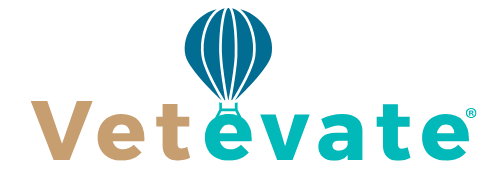Working as a veterinary professional in a zoo is a unique and rewarding career path that combines elements of wildlife conservation, exotic animal care, and public education. Unlike traditional veterinary roles that focus on companion animals, zoo veterinarians and vet techs work with a broad range of species, from reptiles and birds to large mammals and aquatic animals. This diversity demands a specialized skill set that includes advanced diagnostic techniques, species-specific medical knowledge, and the ability to work within multidisciplinary teams that include zookeepers, researchers, and conservationists. Because of this specialization, job opportunities in zoos tend to be more limited and competitive, making it essential to leverage the right resources to identify openings and position yourself as a strong candidate.
Veterinary job boards play an increasingly important role in the modern job search landscape, offering a centralized hub where institutions can post opportunities and job seekers can search according to their professional background and career goals. While many people associate job boards with general employment websites, veterinary-specific job boards cater directly to the needs of animal health professionals, including those with aspirations of working in zoological settings. These boards offer tools that help users filter for exotic or wildlife-focused positions, upload credentials, and stay informed about new listings. For those interested in working in zoos, understanding how to navigate these platforms effectively can be the key to unlocking the right opportunity.
Choosing the Right Veterinary Job Board
Not all veterinary job boards are created equal. Some cater more to small animal practices, while others focus on academia, research, or public health roles. If your goal is to find a veterinary position in a zoo, it’s crucial to identify which job boards are most likely to post these specialized listings. Begin by looking at job boards affiliated with major professional organizations such as the American Veterinary Medical Association (AVMA), the Association of Zoos and Aquariums (AZA), or the American Association of Zoo Veterinarians (AAZV). These organizations often feature job boards that cater to the exotic and wildlife medicine community, making them ideal places to start your search.
Once you’ve identified the job boards that most frequently feature zoo-related roles, it’s important to understand how to use their features to your advantage. Most platforms allow you to create a user profile, upload a resume or curriculum vitae, and set job alerts based on specific keywords or categories. To optimize your search for zoo veterinary positions, include terms like “zoological medicine,” “wildlife,” “exotic animal,” “AZA-accredited,” and “conservation” in your alerts. These keywords will help ensure that you are notified as soon as relevant opportunities are posted. In addition, check whether the job board allows for advanced search options such as geographic location, experience level, or type of institution. Using these filters can help you quickly narrow down your options to those that align with your qualifications and interests.
Tailoring Your Application Materials for Zoo Roles
Veterinary positions in zoos are among the most competitive in the animal health field. As such, your application materials must be carefully tailored to demonstrate not only your veterinary skills but also your understanding of zoological medicine and your commitment to wildlife care and conservation. When uploading your resume or CV to a veterinary job board, ensure that it highlights relevant coursework, internships, externships, or residencies in exotic or wildlife medicine. If you have completed rotations at wildlife rehabilitation centers, research projects involving zoo animals, or conservation fieldwork, these should be prominently featured in both your resume and your cover letter.
Most veterinary job boards allow you to attach a cover letter to each job application or to upload a general one that can be customized for individual roles. For zoo veterinary positions, your cover letter should clearly convey your passion for working with diverse species and your ability to adapt to the unique challenges of a zoo environment. Mention any experiences you’ve had with preventive medicine, enrichment programs, or collaborative care involving zookeepers and behavioral specialists. Zoo employers are often looking for professionals who are as comfortable working in a team as they are making independent medical decisions, so emphasize your communication skills and your ability to collaborate effectively in a multidisciplinary setting.
Moreover, many job boards offer the option to include letters of recommendation or references directly within your profile. Take advantage of this by selecting references who can speak specifically to your experience with exotic animals or your ability to handle the complexities of zoo medicine. A strong recommendation from a mentor who has worked in a zoo or a professor who oversaw your work with wildlife can add credibility to your application and set you apart from other candidates.
Following Up and Building Your Network
Applying through a veterinary job board is only the first step in securing a position at a zoo. To increase your chances of being selected for an interview, consider following up directly with the hiring institution. If contact information is available in the job posting, a polite email reiterating your interest and inquiring about the status of your application can demonstrate your enthusiasm and initiative. Keep your message brief and professional, and avoid excessive follow-up unless you’ve been invited to do so.
In parallel with applying for posted jobs, use the job board as a starting point to expand your professional network. Many veterinary job boards include community features, such as forums or networking groups, where users can connect with others in the field. Participating in these discussions can increase your visibility and open doors to unadvertised opportunities. Furthermore, consider attending conferences and webinars advertised on the job board, especially those focused on zoo and wildlife medicine. These events offer excellent chances to meet potential employers, learn about emerging trends in the field, and gain insights that can make you a more competitive candidate.
Networking can also extend beyond the digital realm of the job board. When you identify a zoo that’s hiring, take time to research its veterinary staff and connect with them professionally via platforms like LinkedIn. A respectful message expressing your admiration for their work and interest in future opportunities can help plant the seeds for future collaboration or mentorship. In such a niche field, personal connections often play a critical role in hiring decisions, so building relationships within the zoo community can be just as important as applying through formal channels.




